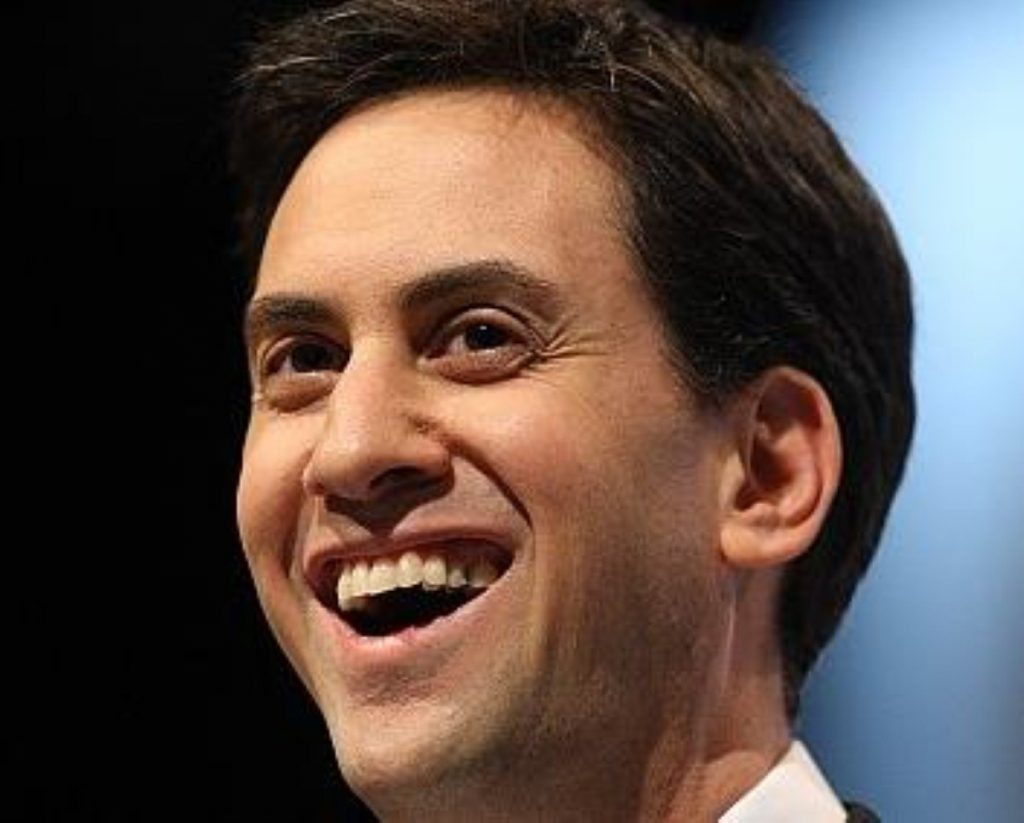Local elections 2012: Big wins for Labour boost confidence in Miliband
Ed Miliband's Labour party has made solid gains across England, as local election results hammer the coalition's Conservative and Liberal Democrats.
Projected vote shares based on the results of the local elections suggest that if a general election was held today, Labour would win 38% of the vote – up two points on last year's results.
The Tories would win 31%, down four, and the Liberal Democrats would win 16%, unchanged.
David Cameron and Nick Clegg said they were "sorry" and "sad" to see so many of their councillors lose their seats as they faced up to concerned party activists this morning.


This afternoon it emerged Labour had held on to Leeds and Newcastle after picking up difficult councils such as Sefton, Wirral and North East Lincolnshire, as well as major cities such as Southampton, last night.
Big wins in the south of England – in places like Thurrock, Harlow and Great Yarmouth – showed the party was able to gain support in the same constituencies which deserted it at the general election.
But there were some setbacks, however. Labour's leader on Bradford council lost his seat to a Respect candidate, in another blow to the party's credibility in the city.
Boris Johnson is still expected to win the London mayoral election, with YouGov projecting 53% support to Ken Livingstone's 47%. The Local Government Information Unit said the race was "tightening", with Boris on 45% to Ken's 40%.
"Much may depend on second preferences but most commentators still calling a Boris victory," the thinktank noted.
By 15:00 Labour were up by over 650 councillors and controlled 28 councils more than they did yesterday, though.
Mr Miliband acknowledged that his party had "more work to do" as he addressed those who did not vote or did not vote for Labour. Overall turnout is estimated at around 32%.
"I know we have more work to do to show we can change our country so that it works for you, for your sons and daughters who are looking for a job, for families feeling a squeeze in living standards, for everybody rather than just a few at the top," he said.
"People are hurting from this recession. People are suffering from a government that raises taxes for millions of families but cuts taxes for millionaires.
"I am determined that we show people we can change people's lives for the better."
Voters appear to have rejected coalition plans for a elected mayors, with referendums in Coventry, Manchester, Nottingham, Birmingham, Sheffield and Wakefield voting 'no' in referenda.
That appeared to be a major setback for the prime minister, who made a keynote speech in Bristol promoting the idea last month.
"This will be a pretty major blow for the government's localism agenda," Stuart Wilks-Heeg of Democratic Audit said. "The campaign in favour has been absolutely lacklustre."
But Bristol bucked the trend with 53% of voters backing the change to a directly elected mayor. The city had not been voting in local elections yesterday.
The headlines are focused on Labour's progress, however, which has been especially impressive in southern parliamentary marginal seats viewed as critical for the next general election.
"Labour seems to be fighting back," the University of East Anglia's Professor John Greenaway told politics.co.uk.
"To do well, to get back into government, they have to win seats in southern cities… I think it will be interesting to see what effect this has on the Tory party.
"There will be those on the Tory right who say let's go back to Thatcherite conservatism, whereas of course there'll be the others who are saying we've got to be a party of all the people."
Of particular concern to the Conservatives will be the strong showing at the polls by Ukip, which gained three seats on Basildon council and in many wards is polling in excess of 20%.
Mr Cameron, asked about Ukip's progress, conceded: "We need to appeal to people."
He said he was "sorry" for Conservative councillors who had lost their seats "against a difficult national backdrop".
"What we have to do is take the difficult decisions to deal with the debt, the deficit and the broken economy we've inherited," the prime minister insisted.
The Liberal Democrats are also struggling, having already lost councillors in many wards. Cambridge, previously a liberal bastion, has slipped to no overall control.
"I am really sad that so many colleagues and friends, Liberal Democrat councillors… have lost their seats," party leader and deputy prime minister Nick Clegg said.
"It's not an easy job and it can't be done overnight, but our duty is to boost jobs and investment and to restore a sense of hope and optimism to our country."
Labour may also fail to hold on to Glasgow, but results north of the border so far are suggesting the SNP are not making breakthroughs on the same scale as was seen last year.

